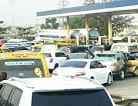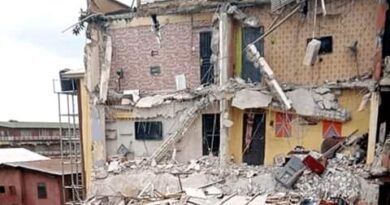Petrol stations to sack workers over fuel subsidy removal and low patronage
There are strong indications that job loss is imminent among workers of fuel stations across the country as owners are planning to cut staff following drastic drop in sales occasioned by the removal of fuel subsidy.
An investigation by Daily Independent across the country revealed that despite the fact that most petrol stations are making more money because of the high price of petrol but there has been a sharp drop in the quantity they sell.
On Monday, May 29, in his inaugural speech, President Bola Tinubu said Nigeria’s fuel subsidies would be scrapped, citing budgetary concerns.
The decision led to a steep rise in fuel prices and widespread panic-buying of fuel. Some bus companies have been unable to refuel their vehicles, leaving many people stranded.
To many Nigerians, the removal of fuel subsidy is an invitation to suffering for the citizens who have to pay more for a litre of fuel, pay more for transportation and also foodstuff which prices have risen as a result of a hike in transport fare.
Petrol prices jumped from N195/litre to over N500/litre in all states and the Federal Capital Territory (FCT), two days after the president’s pronouncement during his inaugural speech.
Lagos was the only exception, where petrol was sold for N488/litre at retail outlets of the Nigerian National Petroleum Company (NNPC) Limited.
The commodity increased by over 156 percent, a development that directly led to the hike in the prices of goods and services across the country.
As a result of the price increase, a petrol station manager of a big retail outlet in Ikeja, Lagos, told Daily Independent that the management is currently compiling names of staff nationwide to be laid off following drastic drop in sales.
He said, “As things stand now, there seems to be no end in sight for any meaningful reduction in the price of petrol in the country and the management told us today (Monday) that there will be possible staff layoff by the end of the month.
“We are not selling as we used to sell and the management said it will not be paying staff that are doing nothing. The subsidy removal is affecting us too. Some of us may lose our jobs”.
Investigations across the country by our reporters revealed that the situation is the same as the management of most filling stations are thinking along the same line as their colleagues elsewhere in the country.
A dealer in Ibadan, Seye Adigun, said he was experiencing low sales compared to the tempo before the price increase.
He explained that most customers now buy between 10 litres and 20 litres of petrol as against the 30 litres and 50 litres they used to buy.
He said his fuel station used to exhaust its stock within four days before the price increase.
“It is now one week and we still have a large volume of petrol unsold,” he lamented.
Another dealer, Alhaji Babajide Ibrahim, also lamented that many of his regular customers have reduced their volume of purchases.
He said, “The business is not moving as before. We no longer get patronage like we used to have before the price increase. People now minimise their purchases while others have adopted alternative means of transportation like commercial motorcycles and tricycles”.




